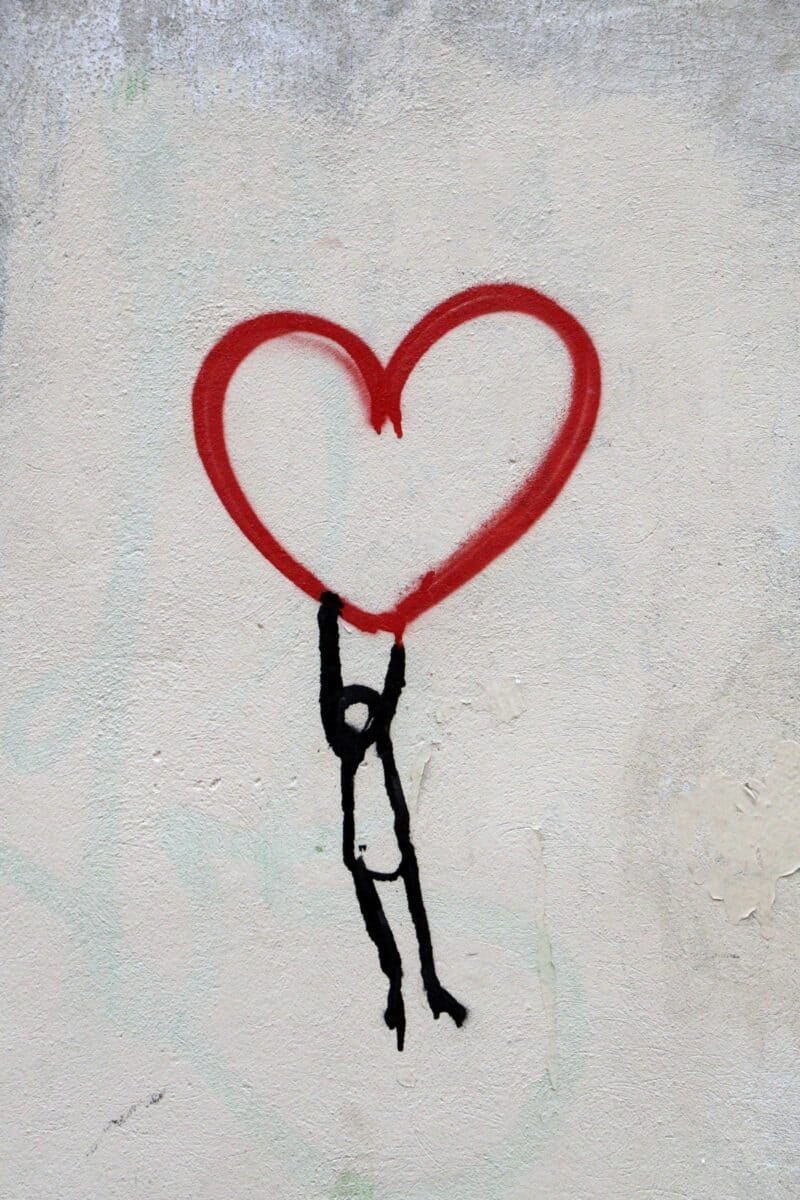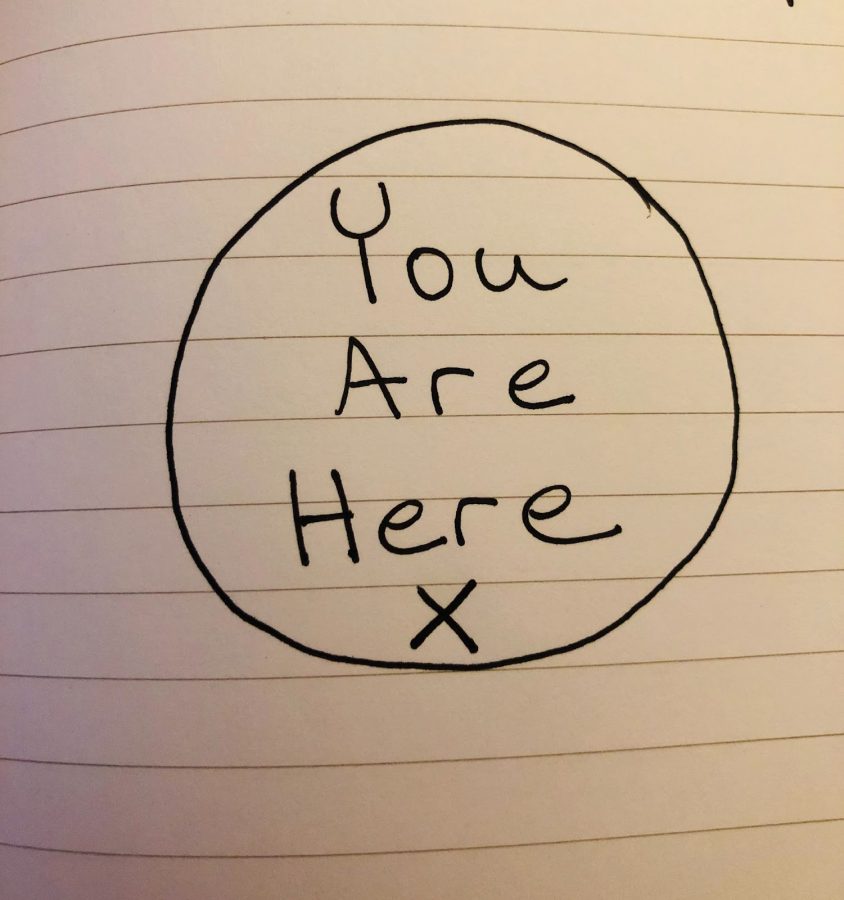A survival guide to teenage drama to make sure you’re not depleting your renewable resources to the point your internal landscape turns into a barren land (at least as friendships are concerned.)

A couple of days ago the facepalm moment finally occurred — the sudden realization that despite everything what was happening at that time, at the age of eighteen I had more common sense, a better developed self-preservation instinct and a deeper insight into my own condition than many people do when they are pushing forty.
What’s worse than that — many of those people seem to be my close friends.
You see, I’m not your usual “life skills” or “advice” writer (it’s probably the only such post you’ll ever get from me, maybe apart from something along the lines “how to survive life as an immigrant”). But I feel compelled to write this article. For all the years I’ve been taking up space on this planet (minus the first five when I couldn’t put a pen to paper yet) I’ve been better at expressing my feelings in writing — when asked to talk about my opinions and emotions I usually end up giving a rounded, polished, sanitized account. Despite telling the truth I am oftentimes left with a nagging feeling that I missed the point.
(Writing is an entirely different kettle of fish though. I love expressing the bluntest opinions in black and white — and it doesn’t apply solely to my own opinions. I’ve also ghost-written numerous break-up notes, rejection letters, complaints and responses to other complaints. Such fun.)
What pushed me to write this post today was the sudden realization that I’ve been drowning in other people’s daily drama. It didn’t occur organically though — I was told so by my partner, plain and simple. For a while I’ve been feeling anxious and overwhelmed and it affected my life and relationship so something needed to be done pronto.
Background story.
As a perfectly normal teenager I used to experience emotional dramas, with one of them particularly prominent and all-encompassing at that time. I also had wonderful friends who lent a sympathetic ear, a hug and a hefty dose of heart-warming advice. In my early twenties this group of friends expanded when for some bizarre reason I got myself in the same drama all over again.
Around that time I vowed to myself that I would always support other people in their emotionally draining moments (you know, the whole “I’ll be there for you” thing) — not only those particular friends but also others who may need my sympathetic ear, a hug and a night of dissecting and over-analysing with a bottle of Egri Bikaver.
What I really didn’t think about but I guess I somehow subconsciously assumed, was that teenage drama would end at some point. It could extend into early twenties, fair enough, but there would be a moment of punto e basta.
As it turned out, it’s not the case.
Definition.
Just to make it clear — I’m not talking about serious problems and tragedies: fatal illnesses, life-altering accidents, murders, terrorist attacks and other involuntary losses. I’m talking about regular difficulties people experience as a consequence of their own bad decisions: hooking up with a wrong guy or gal; not hooking up with a right guy or gal; getting into financial conundrum by spending more than you earn on non-vital things; quitting a good job because you want to move to Papua New Guinea and write this bestseller that absolutely has to be written in Papua New Guinea (or, my dear reader, if you happen to hail from Papua New Guinea, imagine you need to write your bestseller in Moldova); not quitting a job you hate — the one that leads absolutely nowhere and doesn’t pay you enough to move out from your parents’ attic; the list could go on but you get the gist.
In my naivety I assumed that a time would come when we all achieve the serenity to accept the things we cannot change, the courage to change the things we can and the wisdom to know the difference. (Spoiler alert: it hasn’t arrived yet. Particularly wisdom seems to be absent.)
Where has this time gone?
A couple of days ago I thought about the time when I felt particularly bad and took up my resolution after getting emotional help from a friend. (Incidentally, this friend has been a psychotherapist for many years now. A mental note to self: there is a reason why it is her job, not mine.)
It was May 1998.
Twenty. Years. Ago.
The last f*ckin’ century.
I think it’s fair to say that I paid my debts back and forward ten times over.
Plain stupidity.
There are two categories of dramas that people seem to want to talk to me about. The first one is way easier to deal with — I call it “plain stupidity”. In this category you find things that are incredibly annoying to the listener but don’t really have many consequences to anyone else but the talker so you end up just listening, grinding your teeth and thinking of England.
The “serial lover” drama — the one in which your friend falls in love with someone new every couple of weeks and it always ends badly. One day it’s the love of her life, a week later there’s only radio silence from him. And yes, she finds them on Tinder. “Don’t you remember the same story with Simon, Aaron, Pedro and Sajid? Haven’t you noticed they were strikingly similar in their outlooks on life, occupations, family history? Think from pattern to detail, you may get somewhere.” One day, one day.
The “generous but broke” drama — the one in which your friend who works in well paid but temporary jobs (freelancing, contracting, whatever) one day buys you expensive gifts and treats herself to a last minute ticket to LA and a month later has to walk everywhere on foot because she has no money for the bus fare. “You really don’t need this professional-level cocktail mixer and a fridge wirelessly connected to Amazon. Also, it’s a very noble thing to give a monthly donation of 200 quid to an overseas charity distributing food in poorer parts of the world, as long as you make sure you don’t get your own meals from a local food bank in six months time.” “It never happened.” It actually did — in 2005, 2008, 2011 and 2016.
The “grumpy worker” drama — the one in which your friend works in a dead-end job for years, moaning day-in day-out, hating his boss, his colleagues, his subordinates and his customers. “I’m waiting for something better to come up”. He’s been doing this job since graduating in 2003. By 2018 he should know nothing will come up on its own, ever.
The “unsung artist” drama — the one in which your friend calls you to talk about the difficulty of writing a book while maintaining a job and the difficulty of paying for his upkeep when concentrating solely on the creative work. Ah, this perennial dilemma! (Also, Tok Pisin apparently turned out to be more difficult to learn than he anticipated). At first, you think about all those evenings in early 2000s when you dragged him along to other friends’ house parties so he could eat something else than potatoes while working on his book (the same one, by the way). Then you curse the invention of Skype, because in good ol’ times phone calls from Papua New Guinea were prohibitively expensive.
Ethical dilemmas.
The other category is far more difficult to manage. Usually, the drama starts in a similar manner so you may be forgiven to think: same shit, different bucket. It probably would have been, should we still be teenagers but if you’ve done your maths right, you know I’m way closer to forty than to twenty.
In the meantime loads of stuff happened: long term relationships, marriages, kids, dogs, jobs, mortgages, aging parents and all other conceivable responsibilities. Many stories became contaminated and complicated by the repercussions of all of the above. It starts as usual: a friend has a problem, wants to talk about it so you listen and try to support and advise, then you get emotionally involved (in the end it’s your friend we are talking about!) and before you realize, the edges between right and wrong, fair and unfair, goodies and baddies become blurred. Edges are potent and powerful places — a lot can happen on the margins. Et voilà! Congratulations — you’ve arrived at the station called “an ethical dilemma”.
And no, it’s not an invitation to the mental exercise “what would I have done, if I had been friends with Ted Bundy?” Luckily most people deal with far less shocking revelations — but that means that we often don’t wake up until we are right in the middle of a sticky mud.
Let me give you some examples. If your friend has an affair with someone who is married and whose spouse just found out about it and flipped out, does it make it OK that although there is someone who is hurting, you’re going to give a full support to your friend because you value them more than a stranger? If your friend injured someone in a collision which was deemed an accident but you know for a fact they were texting while driving, are you happy they got away with it? If your friend made some unintentional but incredibly reckless financial decisions which caused other people to lose their hard-earned money, do you help them fend off bailiffs until worn-out aggrieved parties give up chasing? If your friend cheated a system so their child got into an excellent school outside their catchment area, does it make it OK that some other, perhaps more deserving kid has to commute now forty minutes across the borough to a worse school? (And I’m not even getting into friends who are “occasionally” sexist, racist and homophobic because loads have been said on that subject already.)
Because the bottom line is that you love your friends. You’ve known them for many years, you wish them all the best in the world, you want them to succeed and be happy. And you are willing to forego your moral values from time to time to give them your big heart, your helping hand and your full attention because you know they would have done the same for you.
Until you can’t do this any longer without crushing your soul.
Which is a place where I am now. I passed the “ethical dilemma” station a long time ago and now I’m heading towards John O’Groats and into the North Sea.

The actual advice.
Don’t do that. It’s not necessarily an indication of a true friendship to aid and abet acts that hurt someone and potentially turn against your friend in future anyway. (I’m a firm believer of the rule that shit never goes away and that the truth always comes out somehow, if not tomorrow, than in forty years. Just give it time.) Don’t get on board with ideas you strongly believe they suck big time, even if your friend tries to convince you otherwise with all their might. They are emotionally involved and they need you to be level-headed. Of course, they may not listen and they probably won’t but you’d be more helpful by planting a seed of a healthy doubt in their mind rather than pouring hectolitres of a fertilizer on the brambles of disaster. Think before you absorb another “do-not-tell-anyone-never-ever” secret because there is a chance your hard drive has a limited capacity. (Mine is officially full, by the way.)
Make sure you catch energy when you can and store it for the occasions when it is actually needed — when your friends turn to you for support in times of serious illness or bereavement, when they need someone to help them move house or find their missing dog. Or when their partner goes off with someone else, when someone misinvests their money and disappears underground, when they have to quit their job to accommodate school-runs to the other end of the borough or when they recover in a hospital after being hit by a texting driver. Because sadly, I don’t have any energy stored for that purpose at present.
And stay true to your own values, whatever they are. If you think a certain type of help or support is a transgression for you, refuse. A true friend will understand — in the end they probably made friends with you in the first place because of who you truly were. And if they don’t… well, too bad. You can’t please everyone and people do change with time. Maybe it’s time to wish each other good luck and bid farewell.
And as for me, I’m going to leave the train and hop on a ferry because there is something past John O’Groats — magical Orkney Islands. Maybe I’ll finally finish my book there!





